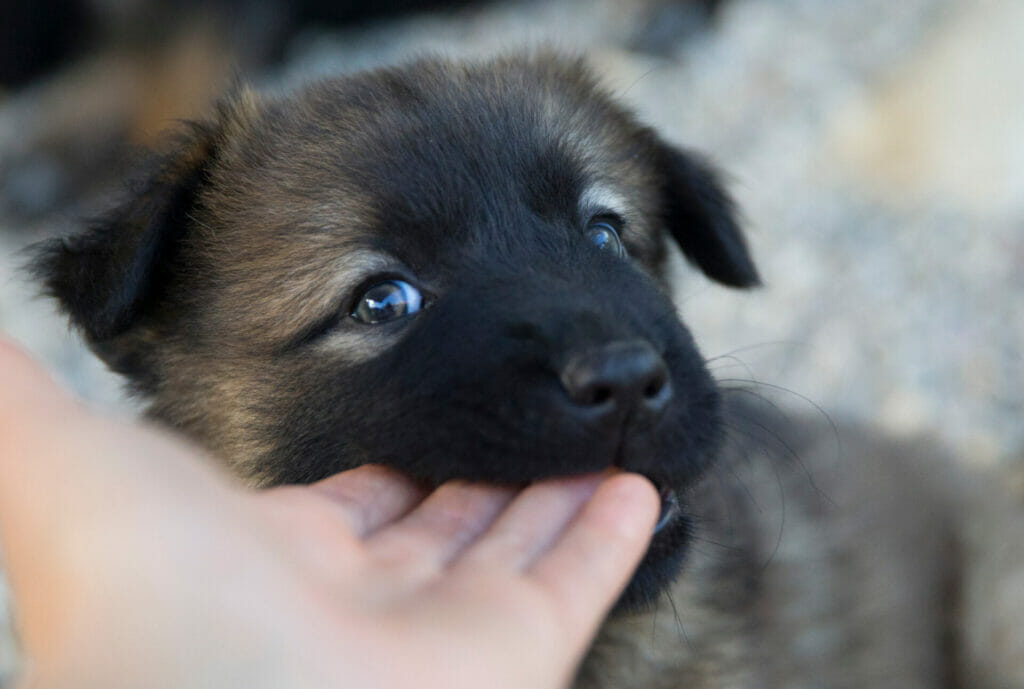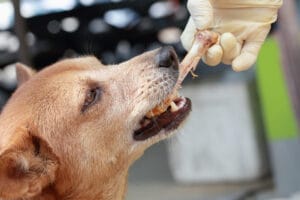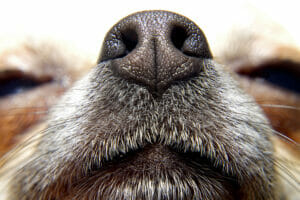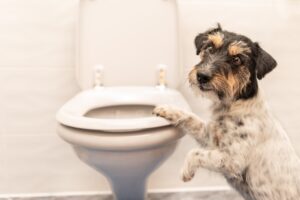Have you ever played with a dog who won’t stop nipping and biting at you? It can be funny at first, but no one wants to be an actual chew toy for their pooch. While nipping, mouthing, and biting are common behaviors in dogs, especially in those mouthy teething puppies, if left unchecked, this behavior can become worrying and problematic.
If you’re having trouble getting your dog to stop nipping and mouthing, you’re not alone. Whether you’re a beginner or a seasoned dog owner, this guide will help you understand the reasoning behind these behaviors and provide the tools you need to train your dog like a pro and deal with dog nipping and biting once and for all.
Why is my dog nipping and biting?
Dogs nip and bite for various reasons. For puppies, mouthing is a normal part of teething, as well as exploring their environment. Dogs also nip and bite during play, when overexcited, or when feeling stressed or anxious. Pain is also a common cause of dog biting. Let’s explore some more reasons why dogs nip and bite.
Puppy biting and mouthing
Boy, does puppy teething cause a puppy to mouth a lot, they just can’t get enough of chewing and mouthing on things as their gums will be sore, and sometimes that will be you! Puppies are naturally curious and explore the environment with their mouth; often, that environment includes us – be it hands, clothes, or nibbling on our toes.
Nipping and biting during play
When it comes to pups, we have to teach them not to put their mouth on us during playtime. They don’t get that our hands aren’t part of the fun and games. Even adult dogs can get carried away and accidentally chomp down on the toy or nip us playfully when they get all riled up.
Biting and nipping when scared
If a dog is scared, it can nip or bite as a way of protecting itself. When a dog is fearful, their fight or flight response is triggered, and if they can’t get away, they may use aggression to keep the threat away.
This can also appear as redirection when your dog nips or bites you because something else in the environment has scared them. We know it’s not your fault!
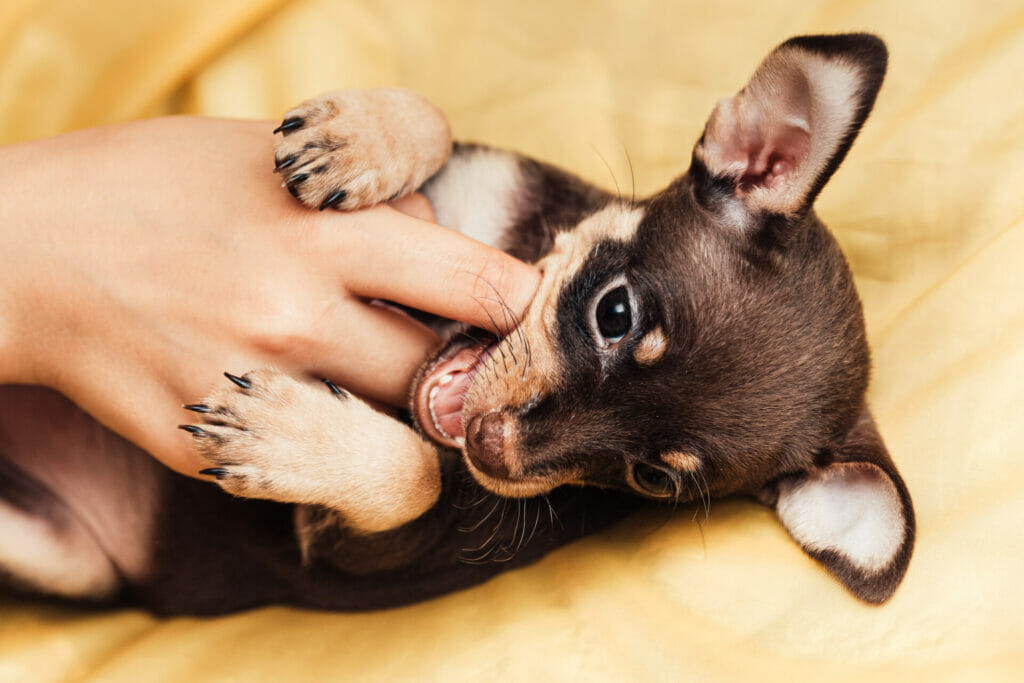
Your dog might be in pain or discomfort.
Signs of pain in dogs can be subtle, but don’t we often feel grouchy and irritable when we’re not well? Dogs can also communicate that they’re in pain or sore by being grumpy, and, yep, probably biting when they’ve had enough.
Problem prevention
So many dog behavior problems like resource guarding, destructive chewing, biting and nipping, and jumping up can be prevented. They can help you learn how to prevent these before they appear effectively.
Defensive biting
Dogs can and do learn to use their teeth and bite or nip when they don’t want to do something but have felt pressured or forced to do it to get the ‘thing’ to stop. We often see defensive biting when dogs have been over-handled or forced to wear a harness or clothing they hate.
Attention-seeking nipping and biting
It’s pretty hard to ignore your dog when they’re nipping and biting you, and for some dogs, that’s precisely why they’re doing it!
How do I stop my dog from nipping and mouthing?
To get your dog to stop nipping and biting, try some of the following tips:
Redirect onto a toy
Redirecting when your dog or puppy is hyped up and nipping and mouthing you is easy to do with toys. Drag the toy along the floor and make it come to life so your dog can pounce and grab it rather than you.
Teach them to leave it.
Teaching your dog to “leave it” can come in handy if they’re nipping or biting at your clothes or as a way to redirect their behavior towards something else. It provides them with more information than just saying “no,” It can help prevent you from getting frustrated with them.
Give them lots of chewing opportunities.
To stop your pup from nipping and mouthing, give them something else to sink their teeth into. Frozen food toys are perfect for soothing sore puppy gums or giving a teenage dog’s jaws a tough workout.
Check for pain or illness.
If your dog has recently started nipping and biting, it’s a good idea to have them checked out by your veterinarian. There are a variety of medical conditions that can cause dogs to be more prone to biting without warning.
Make your dog feel safe.
Whether by not putting them in stressful situations where they’re scared or teaching them happy handling and grooming using positive reinforcement training with plenty of treats.
Teach ‘no teeth on me.’
If your dog is biting you during play, you have to teach them that the fun stops when they use their teeth on you. End the game if your dog is nipping and mouthing at you, and let them have some time to calm down before you play again.
Should I seek professional help for my dog biting and nipping?
Probably. If your dog is nipping or biting, it’s a paw-some idea to seek help from a professional dog trainer or behaviorist. They’re the experts who can dig into the root of the behavior and create a training plan to stop it. Trust us; your pup will be wagging their tail in no time!


